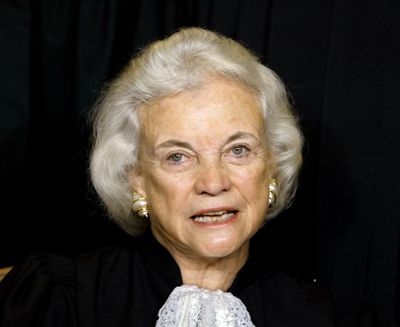O’Connor rethinks Supreme Court role in 2000 election

CHICAGO – Retired U.S. Supreme Court Justice Sandra Day O’Connor hasn’t given much thought to which was the most important case she helped decide during her 25 years on the bench – but she has no doubt which was most controversial.
It was Bush v. Gore, which ended the Florida recount and decided the 2000 presidential election.
Looking back, O’Connor said, she isn’t sure the high court should have taken the case.
“It took the case and decided it at a time when it was still a big election issue,” O’Connor said during a talk with the Chicago Tribune’s editorial board on Friday. “Maybe the court should have said, ‘We’re not going to take it, goodbye.’ ”
The case, she said, “stirred up the public” and “gave the court a less than perfect reputation.”
“Obviously the court did reach a decision and thought it had to reach a decision,” she said. “It turned out the election authorities in Florida hadn’t done a real good job there and kind of messed it up. And probably the Supreme Court added to the problem at the end of the day.”
O’Connor, 83, who was appointed by President Ronald Reagan in 1981, was the first woman to serve on the high court.
In a wide-ranging interview, O’Connor also voiced her support to do away with judicial elections in favor of judicial merit selection, in which candidates are recommended by a citizen advisory group and submitted to the governor for appointment to the courts.
O’Connor was in Chicago to promote one of her pet projects, “iCivics,” an online curriculum set up in a video game format. While most school systems have eliminated civics exams as a requirement for graduation, O’Connor said introducing it to children in the classroom could increase their participation in the election process as adults.